
Volker Hartenstein
University of California, Los Angeles
USA
EMBO | EMBL Symosium
EMBO and EMBL are committed to sharing research advances and sustaining scientific interaction throughout the coronavirus pandemic. We are delighted to announce that this conference is going virtual and invite you to join us online.
Cell types are the fundamental units of multicellular life, which have diversified during animal evolution. Single-cell genomics/transcriptomics technologies and new insights into the molecular mechanisms specifying cell type identity allow us to explore this process in unprecedented detail. Our second EMBO | EMBL Symposium on the identity and evolution of cell types will re-assemble the growing community of scientists pushing forward the limits of this exciting new field. Based on the very positive feedback on the first symposium, we will keep session topics such as the cell type tree of life, and genetic and epigenetic mechanisms of cell type differentiation in development. We have also identified exciting new areas in our rapidly growing field – such as molecular mechanisms of cell type origination in evolution; the evolutionary assembly of cellular modules; different aspects of neuronal identity; and sensory cell type diversification in vertebrates. For this meeting, we will also provide extended discussion time within and between sessions and organise a final discussion.

Karolinska Institutet
Sweden

KU Leuven
Belgium
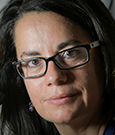
Stazione Zoologica Anton Dohrn
Italy

Harvard Medical School
USA

Research Institute of Molecular Pathology
Austria
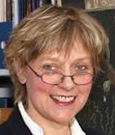
University of Geneva
Switzerland

Columbia University
USA

Research Institute of Molecular Pathology
Austria

Allen Institute for Brain Science
USA
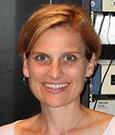
University of California, Berkeley
USA

University of New Brunswick
Canada

Stanford University
USA
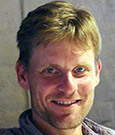
University of California, Santa Barbara
USA
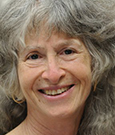
Caltech
USA

University of Basel
Switzerland

Centre for Genomic Regulation (CRG)
Spain

University of Vienna
Austria
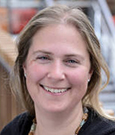
Wellcome Sanger Institute
UK

Columbia University
USA
Stanford University
USA

Estación Experimental Aula Dei – CSIC
Spain

EMBL Heidelberg
Germany
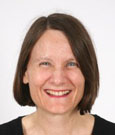
University of Cambridge
UK

Columbia University
USA
Got something to say? Tweet it! #EESCellTypes
The following time is used in the programme below:
To find out the equivalent time zone in your location, enter Berlin, the CEST programme time and your city into the Time Zone Converter.
| Time (CEST) | Speaker |
|---|---|
| Virtual Session 1: Molecular mechanisms of cell type origination in evolution – Session chair: Günter Wagner | |
| 15:00-15:15 | Opening remarks by scientific organisers AVAILABLE ON DEMAND AFTER LIVE STREAM |
| 15:15-15:45 | The evolutionary origins of multicellularity and the role of ductile proteins (IDPs) Inmaculada Yruela – Estación Experimental Aula Dei – CSIC, Spain AVAILABLE ON DEMAND AFTER LIVE STREAM |
| 15:45-16:00 | Deep conservation of developmental enhancers and gene regulatory landscape Emily Wong – Victor Chang Cardiac Research Institute, Australia AVAILABLE ON DEMAND AFTER LIVE STREAM |
| 16:00-16:30 | Co-option of stress responses during the early evolution of specialized cell types Aurora Nedelcu – University of New Brunswick, Canada AVAILABLE ON DEMAND AFTER LIVE STREAM |
| 16:30-16:45 | Short break |
| 16:45-17:15 | Stress, Novelty, Innovation, and Three Epochs of Eye Evolution Todd Oakley – University of California, Santa Barbara, USA AVAILABLE ON DEMAND AFTER LIVE STREAM |
| 17:15-17:30 | The evolution of the cell type specificity mechanism: the case of the uterine decidual cell Daniel Stadtmauer – Yale University, USA AVAILABLE ON DEMAND AFTER LIVE STREAM |
| 17:30-18:00 | Meet the speakers |
| 18:00-19:00 | Digital poster session 1 |
| 19:00-20:00 | Developmental Architecture of the Drosophila Central Complex: From Lineage to Cell Type and Circuit Volker Hartenstein – University of California, Los Angeles, USA AVAILABLE ON DEMAND AFTER LIVE STREAM |
| 20:00-20:30 | Meet the keynote speaker |
| 20:30-21:15 | Optional: Virtual speed networking |
| Time (CEST) | Speaker |
|---|---|
| Virtual Session 2: Molecular and systems biological mechanisms of cell type differentiation in development – Session chair: Brigitte Galliot | |
| 15:00-15:30 | Identifying putative stem cells in the regenerative sea anemone Nematostella vectensis Ulrich Technau – University of Vienna, Austria AVAILABLE ON DEMAND AFTER LIVE STREAM |
| 15:30-15:45 | Dynamic ribosomal RNA modification patterns control cell fate decisions during early development Sophia Julia Häfner – University of Copenhagen, Denmark AVAILABLE ON DEMAND AFTER LIVE STREAM |
| 15:45-16:15 | Autophagy in epithelial stem cells, an ancestral character supporting regeneration and slow aging? Brigitte Galliot – University of Geneva, Switzerland AVAILABLE ON DEMAND AFTER LIVE STREAM |
| 16:15-16:30 | Short break |
| 16:30-17:00 | Decoding gene regulation in the fly brain Stein Aerts – KU Leuven, Belgium AVAILABLE ON DEMAND AFTER LIVE STREAM |
| 17:00-17:15 | Germline and neuronal cell types develop from a common multipotent cell population in adult Nematostella vectensis Patrick Steinmetz – University of Bergen, Norway AVAILABLE ON DEMAND AFTER LIVE STREAM |
| 17:15-17:45 | Modular developmental construction of T-lymphocyte identity Ellen Rothenberg – Caltech, USA AVAILABLE ON DEMAND AFTER LIVE STREAM |
| 17:45-18:15 | Meet the speakers |
| 18:15-18:30 | Short break |
| Virtual Session 3: Sensory cell-type diversification in vertebratesSession chair: Clare Baker | |
| 18:30-19:00 | Are hair cells magnetoreceptors? David Keays – Research Institute of Molecular Pathology, Austria AVAILABLE ON DEMAND AFTER LIVE STREAM |
| 19:00-19:15 | Investigating the specification of hair cells versus electroreceptors in the lateral line using CRISPR/Cas9 in a sturgeon Martin Minarik – University of Cambridge, UK AVAILABLE ON DEMAND AFTER LIVE STREAM |
| 19:15-19:45 | Early diversification of subtypes of sensory hair cells Teresa Nicolson – Stanford University, USA |
| 19:45-20:00 | Short break |
| 20:00-20:30 | Development and maintenance of Merkel cell-neurite complexes, a vertebrate specialization that encodes sustained touch Ellen Lumpkin – University of California, Berkeley, USA AVAILABLE ON DEMAND AFTER LIVE STREAM |
| 20:30-20:45 | Evolution of retinal cell types in the sea lamprey Petromyzon marinus, a basal-branching vertebrate Phil Oel – EMBL Heidelberg, Germany AVAILABLE ON DEMAND AFTER LIVE STREAM |
| 20:45-21:15 | Meet the speakers |
| 21:15-22:00 | Optional: Virtual Bar mixer |
| Time (CEST) | Speaker |
|---|---|
| Virtual Session 4: The evolutionary assembly of cellular modules – Session chair: Jacob Musser | |
| 15:00-15:30 | The Human Cell Atlas and cell types Sarah Teichmann – Wellcome Sanger Institute, UK AVAILABLE ON DEMAND AFTER LIVE STREAM |
| 15:30-15:45 | Neuropeptide repertoire reveals the molecular identity of ctenophore neurons Maria Sachkova – University of Bergen, Norway |
| 15:45-16:15 | Acquisition of cellular identity: insights from mesoderm differentiation in zebrafish Alex Schier – University of Basel, Switzerland |
| 16:15-16:30 | Short break |
| 16:30-17:00 | scRNAseq in sea urchins reveals the blueprint of major cell types and nervous system of a non-chordate deuterostome Maria Ina Arnone – Stazione Zoologica Anton Dohrn, Italy |
| 17:00-17:15 | Tabula floris – panoramic view of the cell types of the flower Luke Nikolov – University of California, Los Angeles, USA AVAILABLE ON DEMAND AFTER LIVE STREAM |
| 17:15-17:45 | Meet the speakers |
| 17:45-18:00 | Short break |
| 18:00-19:00 | Digital poster session 2 |
| Virtual Session 5: Neuronal identity: from genes to morphology and connectivity – Session chairs: Ed Lein & Maria Antonietta Tosches | |
| 19:00-19:30 | Evolution of cortical cell types Ed Lein – Allen Institute for Brain Science, USA AVAILABLE ON DEMAND AFTER LIVE STREAM |
| 19:30-19:45 | Cellular homologies of birdsong control circuits Bradley Colquitt – University of California, San Francisco, USA AVAILABLE ON DEMAND AFTER LIVE STREAM |
| 19:45-20:15 | Neuronal homologies and novelties in the vertebrate forebrain Maria Antonietta Tosches – Columbia University, USA AVAILABLE ON DEMAND AFTER LIVE STREAM |
| 20:15-20:30 | Short break |
| 20:30-21:00 | Spatiotemporal map of retinal bipolar subtype development reveals local patterns of genesis Constance Cepko – Harvard Medical School, USA AVAILABLE ON DEMAND AFTER LIVE STREAM |
| 21:00-21:15 | Evolution of cell types in the hyperexpanded mushroom body of ants Bogdan Sieriebriennikov – NYU Grossman School of Medicine, USA AVAILABLE ON DEMAND AFTER LIVE STREAM |
| 21:15-21:45 | Homeobox genes and neuronal circuitry in C.elegans Oliver Hobert – Columbia University, USA AVAILABLE ON DEMAND AFTER LIVE STREAM |
| 21:45-22:15 | Meet the speakers |
| Time (CEST) | Speaker |
|---|---|
| Virtual Session 6: Cell type tree of life – Session chair: Detlev Arendt | |
| 15:00-15:30 | Early metazoan cell type diversity and regulation Arnau Sebé-Pedrós – Centre for Genomic Regulation (CRG), Spain AVAILABLE ON DEMAND AFTER LIVE STREAM |
| 15:30-15:45 | Cerebellar nuclei evolved by repeatedly duplicating a conserved cell-type set Justus Kebschull – Johns Hopkins University, USA AVAILABLE ON DEMAND AFTER LIVE STREAM |
| 15:45-16:15 | Identity and fate choice mechanisms in the neural crest cells Igor Adameyko – Karolinska Institutet, Sweden AVAILABLE ON DEMAND AFTER LIVE STREAM |
| 16:15-16:30 | Short break |
| 16:30-17:00 | Roles of miRNAs in cell diversification Luisa Cochella – Research Institute of Molecular Pathology, Austria AVAILABLE ON DEMAND AFTER LIVE STREAM |
| 17:00-17:15 | Comparison of haematopoietic cell identity across vertebrates using single cell transcriptomes Carolyn De Graaf – The Walter & Eliza Hall Institute of Medical Research, Australia AVAILABLE ON DEMAND AFTER LIVE STREAM |
| 17:15-17:45 | Mapping single cell atlases throughout Metazoa unravels cell type evolution Bo Wang – Stanford University, USA AVAILABLE ON DEMAND AFTER LIVE STREAM |
| 17:45-18:00 | Short break |
| 18:00-18:30 | Panel discussion: Trends in Cell Type Evolution Panelists: Detlev Arendt, Clare Baker, Volker Hartenstein, Maria Antonietta Tosches, Günter Wagner AVAILABLE ON DEMAND AFTER LIVE STREAM |
| 18:30-18:45 | Closing remarks, digital poster prize announcement AVAILABLE ON DEMAND AFTER LIVE STREAM |
| 18:45-19:15 | Meet the speakers |
Registration Fees:
| Academia | 190 Euro |
| PhD Student | 140 Euro |
| Industry | 240 Euro |
| EMBL Staff | Intranet access |
Accredited journalists may be eligible to register for a reduced press rate or in some cases for complimentary registration. Registrants may be required to provide accreditation or equivalent proof of press membership after registration. Please contact Lea Hohmann for more information.
Registration will be on a first-come first-served basis. Your place can only be confirmed after payment of the registration fee.
Types of payments accepted are international bank transfers (only up to 8 weeks before event) and credit card payments.
Only registered participants are eligible to submit an abstract. We only accept online abstract submissions.
After registration you can submit your abstract via a separate link that will be provided in the email confirmation. Alternatively, you can access the link on the confirmation page directly after registering. The same login credentials are used for both processes.
Please note:
Title: The title should not exceed 20 words. Only the first word of the title should start with a capital letter and the rest of the title should be in lowercase.
Authors and Affiliations: Please fill in the author’s details as requested in the online form. The compulsory details are: First Name, Last Name, Organisation Name (Affiliation or Company), Country and Email. Mark only one author as the role of First author and please don’t forget to indicate who will be presenting. The order of the authors will be listed as follows: First Author, Co-First Author (alphabetically if multiple), co-author(s) (in the order added by the submitter).
Presentation Types: When submitting your abstract, you can apply for an oral or poster presentation. A selection process will take place with the results announced 2-3 weeks after the abstract submission deadline.
Please check our FAQs pages for further information on how to submit an abstract.
All academic and student registrants are invited to apply for a registration fee waiver, provided by the EMBL Advanced Training Centre Corporate Partnership Programme and EMBO. The registration fee waiver covers the registration sum that you have paid to attend the meeting. Conference participants are not required to pre-pay the registration fee to be selected for a fee waiver for a virtual meeting. If you have already paid the registration fee and are awarded a fee waiver, it will be reimbursed after the meeting. Course participants are required to pay the course fee in advance, which will then be reimbursed after the recipient has attended the course.
For participants and speakers with childcare responsibilities there is the possibility to apply for a grant, provided by the EMBL Advanced Training Centre Corporate Partnership Programme and EMBO, to offset childcare costs incurred when participating at a virtual event. Eligible costs include fees for a babysitter or childcare facility or travel costs for a care giver. Please note that priority will be given to early stage researchers. Costs will be reimbursed after the meeting only once a reimbursement form and original receipts have been received. Attendance at the event is required in order to be eligible to receive the reimbursement. In order to apply for this grant, you must be registered by the abstract submission deadline.
Applications for financial assistance can be submitted via the submission portal* (for the submission of abstracts for conferences or the submission of motivation letters for courses) by completing the Financial Assistance Application Section (underneath the section for entering abstract/motivation letter information). The link to the portal can be found in the registration confirmation email that you will receive after registering for the conference or course.
For conferences, if you are not submitting an abstract, you can still apply for financial assistance in the submission portal by following the instructions here. Note that priority will be given to those submitting an abstract to present at the conference. In your application you will be asked to answer questions regarding your motivation for applying, and, for registration fee waivers, the reasons why your lab cannot fund your attendance and how your attendance will make a difference to your career. Application for financial support will not affect the outcome of your registration application.
*For some events, applications for Childcare Grants will still be done by email. Information about the grant will be sent out shortly after the abstract/motivation letter deadline. Please contact the event Conference Officer if you have any questions.
The scientific organisers will select the recipients of registration fee waivers during the abstract selection process for conferences and the participant selection process for courses. Results will be announced approximately 3 – 4 weeks before the event start date. Selection results do not impact your admission to the meeting. Registration fee waiver selection is based on your current work or study location, your motivation for applying, the reasons for needing financial support and the impact this event will have on your career. Childcare grants are allocated based on career stage, with priority given to early stage researchers.
A list of external funding opportunities can be found here, and information on attending a conference as an event reporter here.
For further information about financial assistance please refer to the FAQ page.
Please do:
Please don’t:
Additional information can be found in our Code of Conduct.
It is important to stay healthy and move around, especially when you are attending an event virtually. We have put together a few coffee break stretches and yoga videos. You can find these under ‘resources’ on the conference platform.
Please use the Q&A function. It is possible to send a direct message to participants, poster presenters, and speakers within the conference platform.
If you have any other questions, you can go to the Help Desk on the conference platform. Click on ‘more’ on the top menu and click Help Desk.
The programme is planned based on Central European Time (CET) or Central European Summer Time (CEST) unless otherwise stated. As many virtual participants are attending from around the world, we do our best to accommodate as many timezones as possible when creating the programme. Please take your time zone into consideration when planning your attendance. Remember to set your time zone in your account.
We are using a virtual event platform for this conference. More information about the platform will be shared ahead of the conference.
Media partners:
Development, a The Company of Biologists journal
Journal of Cell Science, a The Company of Biologists journal
Molecular Systems Biology, an EMBO Press journal
Open Biology, a Royal Society journal
Sponsorship Opportunities
We offer a variety of event sponsoring possibilities, with the flexibility to select a set sponsorship package or combine individual sponsorship options to suit your event budget. Discounts are available for companies sponsoring multiple events at EMBL Heidelberg. View other conferences, or contact sponsorship@embl.de for further information.
If you are interested in becoming a media partner of this event, please visit our media partnerships webpage.
EMBO | EMBL Symposia promote scientific communication and collaboration in the European research area. They provide scientists with a platform to discuss and exchange ideas on forward-looking topics and new developments in the life sciences.
Topics emphasise upcoming developments and the interdisciplinary nature of related fields. Jointly funded and organised by EMBO and EMBL – and complementary to their respective courses, workshops, and conference programmes – the symposia promote scientific communication and collaboration.
All symposia are held in the EMBL Advanced Training Centre (ATC) in Heidelberg, Germany, or virtually.
Date: 4 - 7 May 2021
Location: Virtual
Deadline(s):
Abstract submission: Closed
Registration: Closed
Organisers:
Contact: Aline Schnieder